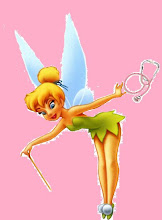Foreword
A few years ago I published posts from my medical school elective in Tanzania whilst I was out there (see 2011 around september time in archives). I used to write them in the evenings on my PDA and then publish them as and when I was able to get access to a computer. As my elective was in a very rural village this was quite sporadic - the hospital did have one computer but being the only computer for a hospital of 120+ patients it was frequently in use and even when you could get access to it (usually late in the evenings if you could find the key to the computers room) the internet could be outpaced by carrier pigeons and power cuts were very frequent meaning I often lost blog posts and emails halfway through trying to send.
The upshot of this is that there are several partial or fully written blog posts lurking on my computer that I never published. Its difficult now to publish the partially written ones as the me that would complete them now already feels like a remarkably different person to the wide-eyed enthusiastic fourth year medical student who was getting frustrated by the level of care given at the hospital and the memories of that frustration have already begun to fade. But, I will try and slowly publish these posts and stay as true to the thoughts I had at that time because my elective remains my most enlightening medical experience and so the most worth blogging about in my opinion. I will say with each post whether it has been partially written in recent times so you can decide for yourselves how accurate to my experiences at that time the blogs are. I won't delete bits of the blogs however much they make me cringe now!
My first solo ward round! (minor additions to first paragraph only)
5.10.11
Accidentally ended up finshing up a male ward
round by myself today because the clinical officer had to go to opd and asked
me to see the last few patients. Pretty
strange having two nursing students plus 1 qualified nurse following me and pushing the notes trolley; I
am used to being the ward round follower or notes trolley pusher! This entourage was definitely useful though
in terms of taking a history when I do not speak swahili! This translation
service wasn't completely useful however as clearly there are boundaries out
here that we wouldn't feel were appropriate within a medical setting in England. For example the nursing students refused to
translate "When were your bowels last open" and giggled at the very
suggestion. Unfortunately this question
wasn't really something I could charades-style act out...
In total
it was only a few patients that I had to see on my own, but think I did manage them correctly and even
noticed that a patient who appears to have had a stroke secondary to
hypertension has not actually received his prescribed antihypertensives for the
last 3 days, something which has not been noticed in the last 3 ward rounds! So
feel pretty proud of myself really, maybe I will make a doctor yet!
Rest of day was pretty full of responsibility
as well. In maternity ward there was a
patient in the labour room with poor progress of labour who was on an oxytocin
drip which was supposed to be given at an increased speed every half an hour,
however despite the fact that there was 3 midwives about plus an insane number
of student nurses, every time I popped into the labour room from ward rounds
the increase in speed would be massively overdue and still not done! So had to
do it myself as well as go on two ward rounds - multitasking skills!
While I waited for the doctor to come and
review this patient after the oxytocin had failed to increase the strength of
her contractions, I watched the nursing students being taught how to perform a
vaginal examination of a pregnant woman.
Craziest teaching of a pv exam that I have ever seen!About 20 students all
round one patients bed whilst the teacher performed an examination this
intimate examination on her! Poor patient! Talk about intimidating! Also some of the
smaller girls standing at the back clearly couldn't see so I'm not sure how
much they learnt from the experience. Very,
very different to how this is taught in England!
 |
| The examination - there are two pregnant ladies within this corner - the one that is being examined and one nearer the camera that students are leaning over in order to see the examination |
Halfadoc x















